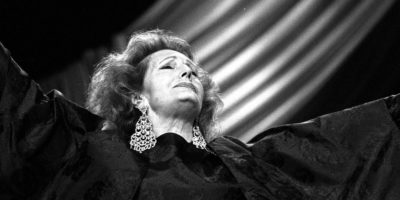Top 20 Incredible Facts about August Strindberg
As a lifelong admirer of groundbreaking writers, I am delighted to guide you through the life of August Strindberg. While known for his pioneering plays and novels, there are astonishing details about this prolific Swedish polymath still waiting to be discovered.
From turbulent upbringing to literary legacy, this collection illuminates surprising trivia beyond Strindberg’s renowned works. We will explore the creativity and controversies that defined this iconoclastic author, who broke dramatic conventions with bold experiments in form and subject matter.
I uncover captivating perspectives on the multidimensional man obscured behind mythos. Join me in revealing Strindberg’s intriguing humanity and seminal influence that still resonates.
1. His breakthrough came in 1881 when his play, “Master Olof” premiered
August Strindberg faced rejection from the Royal Theatre for his major play, “Master Olof,” in 1872. However, his theatrical breakthrough occurred in 1881 at the New Theatre when, at the age of thirty-two, the première of “Master Olof” finally took place and garnered recognition for the playwright.
2. Strindberg was a prolific writer, producing over 60 plays and numerous novels

National Library of Sweden, No restrictions, via Wikimedia Commons
Strindberg was an extremely prolific writer who produced over 60 plays and numerous novels throughout his career. Strindberg was a Swedish playwright, novelist, poet, essayist and painter active in the late 19th century.
He wrote prolifically across many genres, gaining notoriety for his intense psychological dramas like The Father, Miss Julie, and Creditors. In addition to plays, Strindberg penned novels including The Red Room, short story collections, poems, and autobiographical works.
In total, he published over 60 plays during his lifetime, cementing his legacy as one of the most important playwrights in Scandinavian literature. The scale and range of Strindberg’s literary output were immense, allowing him to have an enduring influence on modern theatre and fiction.
His productivity and imaginative scope solidly confirm his reputation as a highly prolific writer.
3. He mastered numerous skills like painting, photography, chemistry, languages, and music
August mastered numerous skills beyond just writing, including painting, photography, chemistry, languages, and music. As a creative polymath, Strindberg developed expertise across artistic, scientific, and linguistic disciplines over his lifetime.
He was an accomplished painter, with works exhibited widely across Europe. As a photographer, he was one of the first to use autochromes in colour photography. Strindberg also studied chemistry intensely, operating his makeshift laboratory and authoring works in the field.
He learned multiple languages, like French and German, to engage with foreign literature. Strindberg also composed musical works drawing on his knowledge as an amateur musician.
His intellect and drive to learn enabled him to gain mastery across this diverse range of subjects, making Strindberg a true Renaissance man of the late 19th century. His creativity and talents extended far beyond the literary realm.
4. Strindberg is considered one of the pioneers of naturalistic and expressionistic drama

National Library of Sweden, No restrictions, via Wikimedia Commons
Strindberg is considered one of the pioneers of naturalistic and expressionistic drama. As a playwright, Strindberg was a trailblazer in using theatre to intensify psychological realism and express inner turmoil.
His early plays adhered to 19th-century naturalism, portraying characters and settings with rigorous detail and motivations shaped by heredity and environment. Later works peeled back naturalistic layers to reveal a more expressionistic style, with surreal, dreamlike qualities that explored the psyche.
Strindberg brought raw human emotion to the forefront of dramatic work and paved the way for theatrical modernism. His groundbreaking contributions helped move Western drama away from conventional theatricality and into bolder psychological territory through his naturalistic and expressionistic innovations.
For this pioneering work, Strindberg is rightly regarded as an originator of two influential dramatic styles.
5. He founded Sweden’s first open-air theatre inspired by ancient Greek theatres
Strindberg founded Sweden’s first open-air theatre inspired by ancient Greek theatres. In 1907, Strindberg established the Intimate Theater in Stockholm and designed it to emulate the open semi-circular layout of a Greek amphitheatre stage.
The natural environment and changing conditions of an outdoor space appealed to Strindberg’s desire for a dynamic theatre. He disliked confined indoor theatre and felt open-air staging would help involve the audience. Strindberg directed his works at the Intimate Theater like A Dream Play to experiment with the boundaries of drama.
The Intimate Theater allowed Strindberg to merge his passion for natural settings and classical Greek tradition by pioneering open-air theatre in Sweden. His innovative and influential theatre left a lasting mark on Scandinavian stage design.
6. Strindberg was proficient in several languages, including Swedish, French, and German

National Library of Sweden, No restrictions, via Wikimedia Commons
He was proficient in several languages, including Swedish, French, and German. As a Swedish writer and intellect in the late 19th century, Strindberg naturally had a strong command of his native language.
But he also took great interest in engaging with European literature and philosophy. To do so, he studied and gained proficiency in multiple languages. Strindberg was fluent in French, allowing him to read seminal works by French authors and thinkers. He also attained proficiency in German to be able to read German texts in the original language.
His motivation to learn languages sprang from a desire to widely interact with contemporary discourse. Strindberg’s intellect and focused effort allowed him to grasp languages beyond his native Swedish and access broader schools of thought to inform his writing and ideas. His linguistic skills were a testament to his cultured mind and dedication to his craft.
7. He experimented with alchemy and claimed to have conducted various chemical experiments
He experimented with alchemy and claimed to have conducted various chemical experiments throughout his life. Strindberg developed a keen interest in chemistry and alchemy, setting up a makeshift laboratory in his apartment in the 1890s.
He studied alchemical texts and undertook experiments attempting to produce gold from base metals, convinced it was possible through alchemical means. Strindberg documented his chemical trials in texts like A Blue Book and A Pink Book.
While he never succeeded at transmutation, his diaries suggest he performed experiments involving distillation, calcination and dissolution procedures.
Strindberg approached alchemy with enthusiasm and intellectual curiosity, determined to bridge spiritual goals and chemical methods. His hands-on chemical work exemplified his motto of “experiencing is creating”.
8. His plays ushered in the era of modern theatre

National Library of Sweden, No restrictions, via Wikimedia Commons
Strindberg’s plays ushered in the era of modern theatre. As a dramatist in the late 19th century, Strindberg rebelled against the conventions of naturalism and realism in the theater.
Through bold, provocative works like Miss Julie, The Father, and A Dream Play, Strindberg pioneered expressionistic and surrealist techniques long before they became mainstream. His psychologically driven plots, complex characters, and dream-like sequences departed from straightforward realism.
Strindberg also innovated through his “chamber plays” written for small intimate stages. By shaking up dramatic structure and form, his plays opened the door for further experimental theatre in the 20th century.
Strindberg captured emotional depths and human psychology in unprecedented ways for the stage. His pioneering dramatic innovations signalled a decisive break from tradition and ushered in the start of a new modern era in Western theatre.
9. Strindberg was one of the first playwrights to depict ordinary people in true-to-life settings
He was one of the first playwrights to depict ordinary people in true-to-life settings. As a pioneer of naturalism in theatre in the late 1800s, Strindberg rejected the dramatic conventions of his time that featured noble characters and fanciful plots.
Instead, he portrayed working-class figures like servants, labourers, and peasants in realistic everyday scenarios. His plays like The Father, Miss Julie, and Creditors unfold in ordinary domestic settings and use colloquial dialogue.
Strindberg used his plays to examine real people, flaws and all. By embracing mundane details of human life rather than romanticizing them, Strindberg gave a voice to common people on stage and influenced subsequent generations of dramatists with his realism focused on everyday characters. His impact reshaped theatre to better reflect unvarnished humanity.
10. August spent significant time abroad engaged in scientific experiments and studies of the occult in the 1890s

National Library of Sweden, No restrictions, via Wikimedia Commons
He spent significant time abroad in the 1890s engaged in scientific experiments and studies of the occult. During this later phase of his life, Strindberg travelled outside his native Sweden frequently. He lived intermittently in Berlin, Vienna, and Paris throughout the decade.
During this expatriate period, he became absorbed in unconventional scientific pursuits like alchemy and photography. Strindberg also joined occult groups like the Theosophical Society to discuss esoteric ideas and reported experiencing supernatural phenomena.
His time abroad was defined by intense immersion in these unorthodox experiments and beliefs outside mainstream science. Strindberg allowed his inquisitive spirit to explore mystical concepts free of limits imposed by society.
His scientific and occult interests matured significantly thanks to the intellectual freedom of those years abroad.
11. He suffered from mental illness and had many bizarre paranoid episodes he called his “Inferno period.”
Strindberg suffered from mental illness and experienced bizarre paranoid episodes that he referred to as his “Inferno period.” In the 1890s, Strindberg went through an intense psychological crisis characterized by delusions and psychotic thinking.
He became obsessed with alchemy, and mysticism and believed he was in contact with unseen forces. Strindberg described it as a night of the soul, giving the name “Inferno” to this period where he felt tormented by inner demons and spiritual anguish.
His mental state deteriorated severely during these years, fueling his eccentric behaviour and paranoid suspicions about enemies conspiring against him. Strindberg channelled the inner turmoil from his “Inferno” into his writing, producing intensely expressionistic works.
His fragile mental health plagued him throughout his life, especially during this prolonged psychologically troubled phase.
12. He was nominated for the Nobel Prize in Literature multiple times but never won

National Library of Sweden, No restrictions, via Wikimedia Commons
Despite being nominated multiple times for the Nobel Prize in Literature, August Strindberg never won the prestigious award. His first nomination occurred in 1901, just after the prize’s inception.
Over the next 15+ years, he received around 10 more nominations from various sources, yet the Swedish Academy consistently overlooked him. Critics speculate that controversy surrounding his radical writings and personal life may have contributed to this.
Some argue the Academy delayed honouring him until after his death, a scenario that never materialized. Nevertheless, Strindberg’s extensive Nobel nomination record affirms the enduring impact of his literary contributions.
Despite missing the award, his legacy as a prominent figure in Scandinavian literature remains unblemished. In 1909, Strindberg, hoping for the Nobel Prize, lost to Selma Lagerlöf, the first woman and first Swede to receive the accolade.
13. Strindberg had a fascination with the occult and mysticism
The Swedish playwright, novelist and essayist, had a strong interest in the occult and mysticism throughout his life.
Beginning in the mid-1890s, Strindberg immersed himself in studies of alchemy, magic, spiritism, Swedenborgianism, Theosophy, Rosicrucianism, and other esoteric practices and beliefs. He conducted alchemical experiments, attended séances, and claimed to have paranormal experiences.
Though sceptical of organized religion, Strindberg embraced what he saw as the hidden mysteries and forces behind nature and human consciousness. His occult pursuits informed much of his writing during his later career.
14. He claimed to experience premonitions and once predicted his son’s sudden illness

Strindberg, August, Public domain, via Wikimedia Commons
The renowned Swedish playwright claimed to have experienced premonitions. In an unsettling instance, he documented predicting his son’s sudden illness in a letter written before the event occurred.
Strindberg’s belief in the supernatural and his encounters with premonitions are evident in his writings, contributing to the mystique surrounding his life and creative works.
15. August was one of the few playwrights of his era to directly criticize the church
He was one of the few playwrights of his era who openly criticized the church. Strindberg, a 19th-century Swedish playwright and author, expressed scepticism towards organized religion in his works.
His plays, such as “The Father” and “Miss Julie,” contained elements of social critique, challenging conventional norms, including those upheld by the church.
Strindberg’s willingness to confront and question societal institutions, including the church, marked him as a provocateur in the literary landscape of his time.
16. He survived multiple suicide attempts during depressive periods

National Library of Sweden, No restrictions, via Wikimedia Commons
Strindberg faced severe bouts of depression and made multiple suicide attempts during his life. Strindberg’s struggles with mental health are well-documented, and he often wrote about his emotional turmoil in letters and autobiographical works.
The playwright’s tumultuous personal life, marked by failed marriages and financial difficulties, contributed to his mental health challenges. Despite enduring these dark periods and making suicide attempts, Strindberg ultimately survived, leaving behind a body of influential and provocative literary works.
His introspective writings provide insight into the profound psychological struggles he grappled with throughout his life.
17. August caused a scandal by depicting a menstruating woman on stage in his play ‘The Father’
He caused a scandal with his play “The Father” (1887) by featuring a scene where a woman is depicted as menstruating. This groundbreaking work challenged societal norms, portraying a confrontational and controversial portrayal of gender relations.
The depiction of menstruation was considered shocking and unconventional for the time, sparking public outcry and contributing to the play’s divisive reception.
Strindberg, known for his provocative and innovative approach to theatre, sought to explore taboo subjects and challenge traditional expectations, making “The Father” a landmark play that pushed the boundaries of social and artistic norms in late 19th-century Europe.
18. Strindberg was prosecuted for blasphemy in Sweden after publishing controversial works

Christian du Jardin & Ida du Jardin, CC BY 4.0, via Wikimedia Commons
In 1884, Strindberg published a collection of short stories called Getting Married, which portrayed women in an equal light to men.
He was subsequently tried for and acquitted of blasphemy charges in Sweden, likely instigated by influential upper-class members and right-wing media, with many believing the prosecution was supported by Queen Sophia.
By the end of 1884, Strindberg was despondent, writing that he felt everything was hopeless and irreparable. In May 1885 he said he was becoming an atheist. After publishing Getting Married, he began corresponding with Émile Zola.
19. He fled Sweden for years after being accused of treason over a controversial short story
In 1894, August Strindberg left Sweden and lived in exile for several years due to accusations of treason. Earlier that year, Strindberg published a satirical short story titled “The New Kingdom” which mocked aspects of Swedish politics and society.
The story’s harsh criticism of the monarchy and other institutions led to charges of lèse-majesté, or offence against the monarch. Strindberg was tried in absentia and sentenced to a fine and a brief jail term.
To avoid imprisonment, Strindberg fled to Germany and did not return to Sweden until 1898, when the charges were dropped under a general amnesty. Though controversial, “The New Kingdom” reflected Strindberg’s critical perspective and willingness to push boundaries in his writing, even at legal risk to himself.
20. August wrote the autobiography “The Son of a Servant” (1886), detailing his struggles and experiences
Strindberg wrote the autobiography “The Son of a Servant” (1886). In this candid and introspective work, Strindberg provides a firsthand account of his life, chronicling his humble beginnings, familial challenges, and early artistic aspirations.
The autobiography delves into his struggles with poverty, his complex relationships, and the pursuit of his literary ambitions. “The Son of a Servant” offers valuable insights into Strindberg’s formative years and the societal context of late 19th-century Sweden.
It remains a significant literary document for understanding the influential playwright’s personal and artistic development.
The incredible facts presented unveil new dimensions of August Strindberg beyond his pioneering literary legacy, spotlighting his turbulent upbringing, iconoclastic works, and enduring influence.
By illuminating the creativity and controversies that defined this multifaceted author, these insights provide a more nuanced understanding of how Strindberg broke dramatic conventions that still resonate. The man exceeds the mythos.
Planning a trip to Paris ? Get ready !
These are Amazon’s best-selling travel products that you may need for coming to Paris.
Bookstore
- The best travel book : Rick Steves – Paris 2023 – Learn more here
- Fodor’s Paris 2024 – Learn more here
Travel Gear
- Venture Pal Lightweight Backpack – Learn more here
- Samsonite Winfield 2 28″ Luggage – Learn more here
- Swig Savvy’s Stainless Steel Insulated Water Bottle – Learn more here
Check Amazon’s best-seller list for the most popular travel accessories. We sometimes read this list just to find out what new travel products people are buying.










